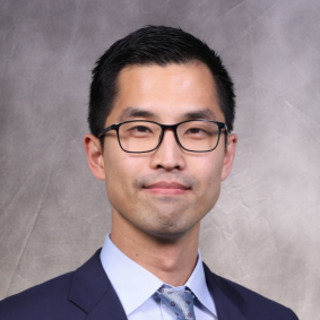
According to a 2017 study by the Pew Research Center, only 21 percent of U.S. adults express a great deal of trust in scientists to act in the best interests of the public. Public support for political movements that disregard scientific evidence on topics such as vaccines and climate change are still thriving.
As a surgical resident, I encourage curiosity among my patients to ensure that they are engaging with, and not merely following, scientific advice. However, I worry when the conversation turns from being curious to skeptical, as in the case of my recent patient.
He was an elderly gentleman with a history of severe peripheral vascular disease who was admitted with symptoms indicating that his legs were not receiving enough blood flow to function. Though it was clear that he needed surgery based on the most recent guidelines, he remained skeptical of our advice and questioned the research behind it. It required nearly 36 hours and multiple conversations with multiple providers until he gave his consent. By then, parts of his legs had become no longer viable, requiring partial amputations.
Physicians rely on public trust to do our jobs. We provide transparency and advice to our patients, not commands. Hence, we are often powerless when our patients do not place faith in our judgment.
The relationship between the physician and patient was not always like this in the past. The Hippocratic Oath, in fact, originally encouraged paternalism. It read:
“[Conceal] most things from the patient… give necessary orders with cheerfulness and serenity…revealing nothing of the patient’s future or present condition.”
The logic at the time was if providers know best and act in the best interests of their patients, why “burden” them with any decision-making or awareness of distressing information? It was sufficient for the physician to simply make decisions on their behalf.
However, the 20th century challenged this notion. Vulnerable patients were at times exploited in the name of the greater good. The Tuskegee experiment failed to inform or treat hundreds of impoverished, African-American sharecroppers infected with syphilis. As late as 1961, 88 percent of physicians preferred not to inform patients of their cancer diagnosis, a practice unimaginable by today’s standards.
Realizing the dangers of not requiring patient consent, in 1976, the US Presidential Commission published the Belmont report. The document established autonomy as one of the core ethical pillars in science, defined as all individuals’ right to self-rule, free of controlling influences.
So when our patients ask questions such as, “How do I know that this is really necessary?” we need to understand that they are exercising their well-earned rights, though it is all too easy to dismiss their skepticism. It is their job to ask questions, and it is our job to earn the public trust in the scientific enterprise.
This can be a wake-up call to open our doors to the public in new and unique ways. Listening to their perspectives also teaches us on how better to earn their trust.
1. We need to involve the public in advancing science.
The research process is currently exclusive and ill-defined. Questions are formulated and answered with little public input despite their profound implications for the rest of society. When is the last time the scientific community formally engaged the public on what they think is important to study? Also, when designing a study, why not ask the public which outcomes would be most meaningful for their well-being? Why not ask how the study can avoid potential barriers to their participation, such as hidden costs or logistical challenges? For the first time, we must not only withstand the scrutiny of grant-reviewers and journal editors, but also the very communities who ultimately contribute to and are affected by these studies.
We need to fundamentally re-imagine this relationship in the 21st century, using new tools at our disposal, such as social media. These platforms empower users to produce and share meaningful content, ranging from a crowdsourced encyclopedia to, most recently, a formidable nationwide gun reform movement led by our youngest stakeholders. The immense success of Foldit, a multiplayer game on protein structure prediction, has demonstrated public talent and appreciation for the scientific inquiry and method.
2. We need to create a more transparent and user-friendly online presence.
We need to engage with the public more transparently and effectively online. That entails outlining scientific proposals in simple, compelling terms, and giving everyone the opportunity to provide feedback. Currently, the government webpage housing all ongoing clinical trials contains content that is static, top-down and highly technical. Alternatively, using formats similar to a Change.com petition or a Kickstarter page can allow communities to suggest improvement and even demonstrate their commitment to the project, signifying partnership, not paternalism. This is not a selfless proposition as much as it is a symbiotic one. Involving the public not only invites greater trust, but also improves the quality and impact of research. A clear, honest online presence with mutually agreed-upon goals can boost enrollment: a Facebook organ donor campaign increased registration by 21-folds in just one day.
One of the fundamental limitations in inviting public opinion is their varied level of education and expertise, which may render collaboration more difficult. Some voices may be politically, financially or ideologically motivated. As history has demonstrated, wisdom and truth do not always reside in social media. Yet some of the most profound, life-changing discoveries were found on “the road less traveled,” going against the conventional and popular norms. We should be careful to protect such examples of courage and vision.
The scientific community has the opportunity to invite the public into the curious world of scientific inquiry. With humility and openness, scientists may discover new insights and ethical considerations from these conversations – a public review, if you will. Ultimately, true to our spirit, the American scientific narrative ought to be written for the people, and by the people.
Image: frimages / gettyimages
Jason Han, MD is a thoracic surgeon and a 2018–2019 Doximity Author. He tweets at @JasonHanMD.







